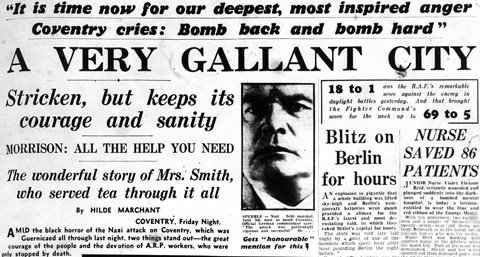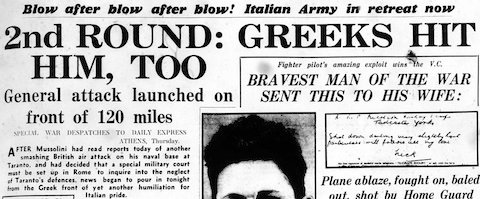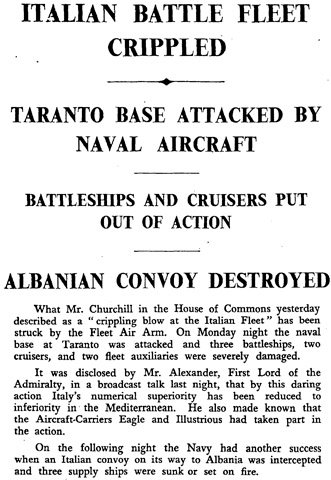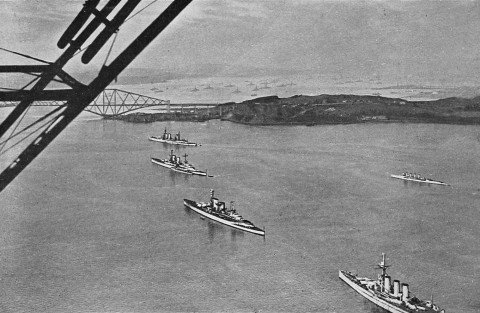
Some inconsistencies in the Daily Mirror's message today. Liverpool was bombed heavily last night in 'One of the most severe raids in the air blitz' (1):
Fire bombs damaged a boys' college and caused casualties; a secondary school was hit by an oil bomb and incendiaries; numbers of houses were destroyed; gas and water mains were fractured. There were no reports of any vital damage to industrial undertakings.
This last statement is presumably the basis for the statement that the raid had 'failed'. However, the Mirror suggests that Liverpool, along the recent lessening of attacks on London and the Coventry raid, 'is a clear indication that Goering is copying the R.A.F. and aiming blows at the production centres and military objectives of the provinces'.
Henceforth, the Germans are expected to copy our devastating raids on military objectives in Germany.
But will they be too late?
In the view of the air experts, they would have achieved considerable success if they had started at the beginning on our military objectives instead of foolishly attempting to break London's morale and win a short war.
Which is the opposite of what actually happened back in August and September, but never mind.
...continue reading






